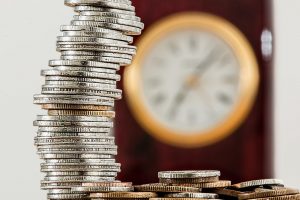Forget the angular momentum created by spinning on its axis – money makes the world go around.
Theoretically, there is a finite amount of wealth distributed across the earth – with each country offering their best services and products, taking advantage of their climates, their natural resources, and the skills of their workers to provide the greatest offering to reap the greatest reward. But, when it comes to the richest countries, how correct are we in our assumptions? Are the UK and USA top of the table or have the BRIC countries (developing economies and industries: Brazil, Russia, India, China) managed to shift the balance? Well, there are actually many answers to that question.
Wealth Per Capita
One way of measuring how rich a country is is by measuring the wealth per capita or how much each person in the country has. After all, the whole is only as great as the sum of its parts so a country’s wealth could be measured by how wealthy each member of that country’s population is. Credit Suisse S.A. published an account of each country’s wealth per capita in November 2017– figures influenced by real estate, equity market, exchange rates, resources, and tech advancements. Topping the table for wealth per adult was Iceland with $587,649, followed by Switzerland at $537,599, and Australia at $402,603. The US came next with $388,585 – yet dropped to 25th place when analyzing the median wealth of each citizen and topped the table for overall wealth as a country, with $93,560 billion.
Number of Billionaires
Another way of measuring how wealthy a country is is through the amount if million/billionaires. If a country has the means to create individuals with great wealth, then the country itself can be deemed to be wealthy. Indeed, according to CNBC, the US has produced 585 billionaires (in its short time as a nation, relative to others) who boast $2.466 trillion collectively. China follows far behind with 260 at $675 billion – which is significantly lower considering the greater population. Indeed, Jeff Bezos stands at the richest billionaire in the world, according to Betway. Bezos created the Amazon empire and jumped from millionaire to billionaire in just two years, totaling a wealth of $90billion, and continued this growth with the purchase of The Washington Post. Americans Bill Gates and Warren Buffett round out the top three. Judging by this analysis, the US could be deemed the richest country. The industrial spirit of the USA shows that, for SMEs, the country provides the greatest opportunities to gain wealth and grow as a business. Bose have recently started a scheme to invest in start-ups, which reinforces the ‘American dream’ way of becoming a billionaire.
State-Owned Wealth
Finally, by measuring state-owned wealth, we can also gain a picture of which countries are the wealthiest. To measure this, we can look at countries with state-owned funds or sovereign wealth funds. The USA tops the list here, with $2,911.4 billion in non-commodities, while Japan and Norway follow behind ($1328 billion and $954.1 billion respectively) in national pensions and oil tied into the country. This also explains how Kuwait and Hong Kong can be considered among the top 50% wealthiest countries due to their reserves of commodities and funds. SMEs can learn that by taking on the natural resources or the commodities native to a country, greater trade links can be made through it, which can fall back on the exchange of currency in forex.
But, Costa Rica could also be seen as the richest country – if the measure was in happiness, as it was deemed the happiest nation in the world, despite being cash-poor. Or Colombia and Argentina could be classed as wealthiest, as they have the most amount of public holidays (18). Ultimately, the wealthiest country will be down to the metrics placed upon it. Usually financial, the tables generally give a view that the USA is one of the wealthiest countries in the world.


